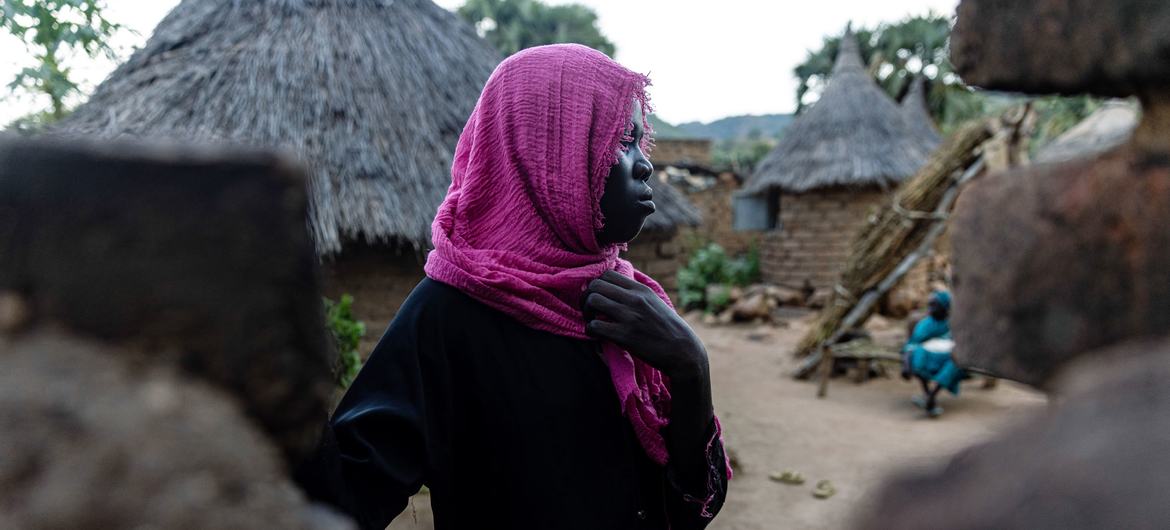Shocking Revelation: 230 Million Women & Girls Undergo Female Genital Mutilation – Can You Believe It?
Released on Friday, coinciding with International Women’s Day, the data compiled by UN Children’s Fund (UNICEF) shows that the pace of progress against FGM remains slow and woefully off track to meet the Sustainable Development Goal of ending the practice by 2030 (SDG 5, target 5.3).
The global pace of decline worldwide would need to be 27 times faster to reach the target, said the agency.
FGM or cutting, is a practice that involves altering or injuring the female genitalia for non-medical reasons.
Worrying trend
“Female genital mutilation harms girls’ bodies, dims their futures, and endangers their lives,” said Catherine Russell, UNICEF Executive Director.
“We’re also seeing a worrying trend that more girls are subjected to the practice at younger ages, many before their fifth birthday. That further reduces the window to intervene. We need to strengthen the efforts of ending this harmful practice.”
To eradicate FGM, UNICEF is calling on communities and leaders everywhere to step up their efforts to end gender discrimination and inequality, urgently invest in services for girls, prioritize girls’ rights in laws and policies, and better track the prevalence of FGM using reliable data.

© UNICEF/Adriana Zehbrauskas
In the South Kordofan state of Sudan, a 15-year-old girl is seen at home after returning from a community awareness session about FGM.
Volatile countries at risk
Although FGM is not becoming more common, the report revealed that the number of girls born in FGM-practicing countries is growing rapidly compared to the rest of the world.
The largest numbers are in African countries, accounting for 144 million cases, followed by 80 million in Asia and six million in the Middle East.
It added that four in ten FGM survivors live in impoverished or conflict-affected countries, which already have strained education and health services or where resources which could be used to address gender inequality are diverted towards crisis response.
Changing attitudes
While it’s a daunting challenge, the report also highlighted that progress is possible and the goal still attainable.
Half of the progress made in the last 30 years happened in just the past decade, UNICEF said, citing examples from Kenya, Sierra Leone and Egypt.
It also noted that attitudes around FGM are also changing.
According to the report, around 400 million people in practicing countries in Africa and the Middle East – or two-thirds of the population – are opposed to FGM.
Garrett is a skilled author driven by a desire to illuminate global issues through his writing. With a foundation in journalism and international relations, he offers a distinctive viewpoint in his work, exploring the complexities of geopolitical events in depth.




It is heart-wrenching to read about the millions of women and girls still subjected to female genital mutilation. This cruel practice needs to be eradicated swiftly. We must all work together to protect these vulnerable individuals and ensure a better future for all.
Do you think global initiatives and awareness campaigns are effective in combatting female genital mutilation based on the slow pace of progress mentioned in the article?
Global initiatives and awareness campaigns play a crucial role in combatting female genital mutilation, but their impact can be limited by various factors such as cultural beliefs, lack of resources, and weak enforcement of laws. It’s essential to address these challenges comprehensively to accelerate progress in eradicating this harmful practice.
UNICEF Report Reveals Over 230 Million Women and Girls Undergo Female Genital Mutilation – Shocking! This is a heartbreaking and urgent issue that demands immediate global attention. It is disheartening to see that the progress against FGM is falling far behind the target. Communities and leaders must unite to protect the rights and well-being of women and girls everywhere.
I cannot believe the shocking statistics presented in this article. It is truly disheartening that millions of women and girls are still subjected to female genital mutilation. The slow progress highlighted by UNICEF is alarming, and urgent action is needed to end this harmful practice. Let’s all come together to protect the rights and well-being of girls worldwide.
Do you think enough is being done to combat Female Genital Mutilation globally considering the concerning trends highlighted in the article?
I believe that more decisive actions must be taken on a global scale to combat Female Genital Mutilation. The trends revealed in the article are distressing, and urgent measures are needed to protect women and girls from this harmful practice.
It’s truly devastating to learn that so many women and girls still have to endure the horrors of female genital mutilation. The slow pace of progress is concerning, and urgent action is needed to end this practice for good. My heart goes out to all the victims of FGM, and I stand in solidarity with efforts to eradicate this harmful tradition.
Can you believe the slow progress in ending female genital mutilation worldwide? What more can be done to accelerate the efforts?
I’m appalled by the stagnant progress in eradicating female genital mutilation. We must intensify awareness campaigns and educational programs to accelerate the fight against this harmful practice.
Can we do more to raise awareness and combat female genital mutilation globally?
Yes, MorganJohnson, raising awareness and combating female genital mutilation globally is crucial. It’s alarming to see that the pace of progress is slow, and we are far from meeting the goal set for 2030. It’s essential for communities and leaders to work together, invest in girls’ services, prioritize their rights, and gather accurate data to effectively combat this harmful practice.
It’s absolutely appalling to see that 230 million women and girls are still suffering from female genital mutilation. We must all work together to put an end to this cruel practice and protect the rights and well-being of women and girls worldwide.
I find it deeply unsettling that despite global efforts to end FGM, the progress remains slow and does not meet the Sustainable Development Goal by 2030. It is crucial that communities worldwide prioritize girls’ rights and take urgent actions to eradicate this harmful practice.